Iran-backed militants threaten Saudi Arabia despite thaw in Tehran-Riyadh ties
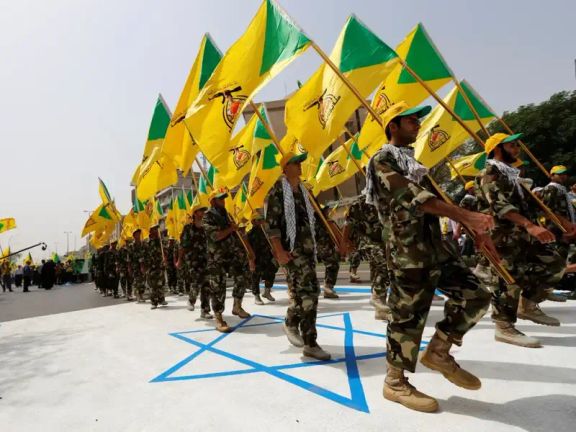
The Iranian-backed Iraqi militant group Kataib Hezbollah issued threats against Saudi Arabia, despite the recent détente in Tehran-Riyadh relations.

The Iranian-backed Iraqi militant group Kataib Hezbollah issued threats against Saudi Arabia, despite the recent détente in Tehran-Riyadh relations.
After years of severed diplomatic relations, Iran and Saudi Arabia agreed to resume their diplomatic relations by signing a China-brokered renormalization deal in March 2023.
Kataib Hezbollah, an Iraqi Shia group closely aligned with Iran's Islamic Revolutionary Guard Corps (IRGC), warned Saudi Arabia, which it termed the "Kingdom of Evil," of consequences for its perceived role in the Israel-Gaza conflict.
The threats also extended to Bahrain and the UAE, countries that normalized relations with Israel under the Abraham Accords. Kataib Hezbollah called for increased resistance against Israel and stronger support for Gaza, consistent with its history of Iranian proxy warfare.
Despite last year’s reconciliation between Iran and Saudi Arabia, Kataib Hezbollah's stance suggests the possibility of renewed hostilities.
Kataib Hezbollah is part of a broader coalition of Tehran-backed militant groups, called the Islamic Resistance in Iraq, which has been launching rocket and drone attacks against Israel and the US since the beginning of the Gaza war last year.
The US has sanctioned Kataib Hezbollah since 2009 due to its connections with the IRGC and involvement in attacks on US interests.
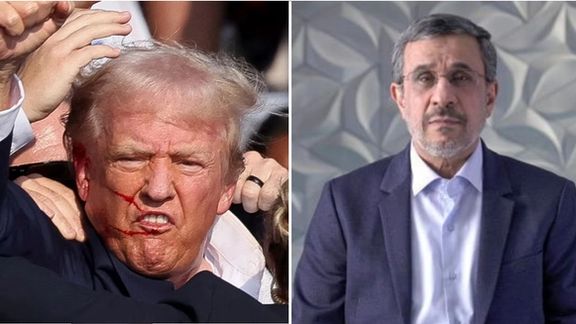
Iran's former president Mahmoud Ahmadinejad condemned terrorism on Sunday in an apparent reaction to the recent assassination attempt on former US president Donald Trump.
Trump was targeted in an assassination attempt at a rally in Pennsylvania on Saturday, resulting in the death of one attendee and critical injuries of two others.
Without naming Trump, Ahmadinejad took to X to denounce terrorism as a violation of human rights.
"Terror and terrorism, whether state-sponsored or non-state, are among the most heinous anti-human actions that words cannot express the depth of their evil," in an apparent reference to the attack."Humanity around the world suffers from such severe pains," he said on X.
The statement is part of his efforts in recent years to rebrand himself as a moderate figure in Iranian politics, although many still remember his hardline policies during his tenure, which included the arrest, torture, and killing of numerous protesters.
Having served as the president of Iran from 2005 to 2013, Ahmadinejad has remained an active and often controversial figure in Iranian politics. He has run for president in every single election since 2017 but has been barred from running three times.
After his latest disqualification, he boycotted the June 28 votes and then travelled to Turkey, sparking mixed reactions. Iranian outlets criticized Ahmadinejad for his photos with women not wearing hijab and questioned the timing of his departure, suggesting a deliberate boycott of the July 5 runoff presidential election.
In an interview with Turkish media, Ahmadinejad emphasized his dedication to peace and global harmony, distancing himself from his past hardline image. It was during his time in office when the morality police were launched to enforce the mandatory hijab on women in Iran.
Ahmadinejad's apparent reaction to the attack on Trump comes one month after he criticized the Supreme Leader's foreign policy, expressing willingness to engage in economic relations with the US and hold talks with Donald Trump.
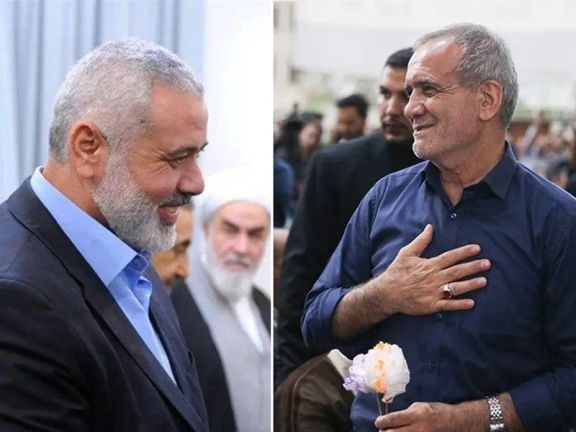
Iran's President-elect Masoud Pezeshkian on Sunday reiterated the Islamic Republic's support for the Palestinian Hamas militant group as well as Yemen's Tehran-backed Houthis.
While Pezeshkian has not identified himself as a reformist nor has he officially aligned with any reformist factions, Western media has recently portrayed him as a "reformist" or "moderate." However, his actions and statements since his election victory align with the policies set by Khamenei, including supporting the anti-Israel "Resistance Front."
In a phone conversation with Hamas chief Ismail Haniyeh on Sunday, Pezeshkian said the Islamic Republic will never leave the Palestinian nation alone in these difficult times."
This was their first phone call following Israel's Saturday strike targeting Hamas military chief Mohammed Deif.
Pezeshkian had earlier on Wednesday reiterated Tehran's support for its proxy groups fighting Israel, a move that once again signals Iran's major policies are dictated by Khamenei, leaving presidents with little room for change.
Similar sentiments were conveyed to Syrian President Bashar al-Assad and Hezbollah Secretary General Hassan Nasrallah, demonstrating Pezeshkian's commitment to the so-called Axis of Resistance.
Praise for Houthis amid ship attacks
In a separate call with Houthi military leader Mahdi al-Mashat on Sunday, Pezeshkian said the "people of Iran and free nations appreciate the actions of the Yemenis under the current difficult circumstances." He also expressed hope for expansion of relations between the two sides.
Iran has been arming, training, and funding the Houthi militia, which have been launching attacks against commercial vessels since the beginning of Israel-Hamas war in Gaza Strip last year.
Over 60 targeted attacks on vessels, along with missile and drone launches, have resulted in the deaths of four sailors and the kidnapping of dozens. These attacks followed a call from Iran’s Supreme Leader Ali Khamenei for Muslim nations to blockade Israeli trade.
In his phone call with al-Mashat, the Iranian president-elect criticized certain Muslim countries for acting “based on their own interests and merely issue statements" in the wake of Israel's war on Gaza.
“Naturally, free nations will judge those rulers who have not taken action to stop the crimes of the Zionist regime against the Palestinian people," he said.
The comments echo similar statements by Khamenei who has criticized other Islamic countries for not severing all relations with Israel and "being soft" on the Jewish state.
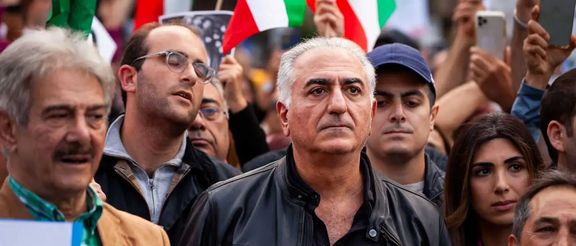
Iran’s exiled Prince Reza Pahlavi called on the new British government to classify the Islamic Revolutionary Guard Corps (IRGC) as a terrorist organization, arguing that the proscription will boost democrats in Iran.
The IRGC is currently designated as a terrorist group by the United States, Bahrain, Canada, Israel, Saudi Arabia, and Sweden. The European Union is also considering a similar listing based on an initiative by Germany. The UK has sanctioned the IRGC “in its entirety,” yet London has not declared it a terrorist organization.
In an article published in The Telegraph, Iran's exiled prince emphasized that the IRGC has a long history of exporting “radical revolution,” including hostage-taking, assassination attempts, and terrorist attacks, which have also impacted Britain. He praised Canada’s recent decision to list the IRGC as a terrorist group and called on Britain to lead Europe in taking similar action.
Highlighting the IRGC's involvement in funding and supporting terrorist activities by groups like Hamas, Hezbollah, and the Houthis, as well as its support for Russia's invasion of Ukraine, Pahlavi argued that the evidence against the IRGC is “unequivocal.” He also condemned the IRGC’s repression of the Woman, Life, Freedom movement in Iran.
The former UK government, led by the Conservative prime minister Rishi Sunak, had considered proscribing the IRGC but decided against it on a number of occasions, arguing that listing the IRGC as a terrorist organization would hinder diplomatic dialogue with Tehran.
The Iranian prince dismissed the Sunak administration's stance, asserting that decades of appeasement have only emboldened them.
Pahlavi's plea comes amid political shifts in Iran, following the death of former President Ebrahim Raisi in a helicopter crash and the rise of Masoud Pezeshkian as his successor.
In his article, Pahlavi warned against viewing Pezeshkian as a reformist, describing him as a staunch supporter of the Supreme Leader and the Islamic Republic’s hardline policies.
“The Islamic regime is rattled, weak, and desperate. This is why they have allowed a so-called ‘reformer’ to win the presidency. He is a fig leaf. Western democracies should not fall for this political maneuver,” the prince said.
He also stressed the need for Western nations to support the Iranian people's desire for democracy and freedom, urging them to increase pressure on the Islamic Republic rather than easing it.
The prince called for a policy of maximum support for the Iranian people's fight for democracy, akin to the policies that helped end apartheid in South Africa and communist regimes in Eastern Europe.
Pahlavi concluded by envisioning a democratic, secular Iran at peace with its neighbors and contributing to regional prosperity, urging Britain to take the first step by listing the IRGC as a terrorist organization.
Last month, a report by The Telegraph said the UK’s Labour Party intends to proscribe Iran’s Revolutionary Guard as a terrorist entity, if it wins the general election.
The leading figures in the Labour Party do not share the Conservatives' hesitation and would be willing to back a change in the law that would allow for the IRGC’s proscription.
Proscribing the IRGC as a terrorist group would mean it would become a criminal offence in Britain to belong to the group, attend its meetings or carry its logo in public. The IRGC is already subject to British sanctions.
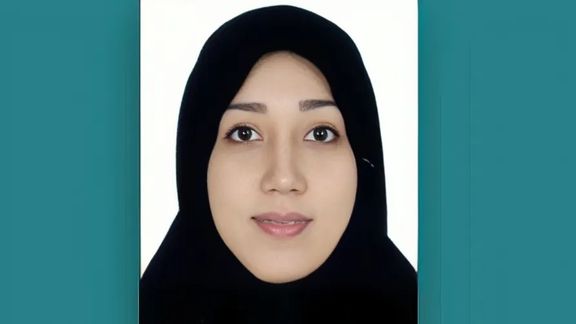
An Iranian pediatrician has taken her own life in Yazd, central Iran, amid a growing suicide crisis within the nation's medical community.
Dr Noor Foroughi Nasab was a resident of the pediatric department of Shahid Sadoughi Hospital and the mother of a young child. "The deceased had a history of suicide and the relevant authorities were aware of her condition," said Mohammadreza Asadi, a member of the board of directors of Iran's Medical Council (IRIMC), according to KhabarOnline.
Recent figures provided by Tejarat News, a non-independent news outlet, indicate that a doctor has taken their own life approximately every 10 days since the beginning of the Persian New Year in late March this year.
Experts have attributed the increased suicides in Iran to the systemic reluctance and neglect of Iranian authorities to address workers' conditions.
As pay and working conditions worsen in Iran, reports reveal a 200% increase in doctors applying for immigration compared to five years ago.
The Iranian Psychiatric Scientific Association has highlighted that 16 medical residents took their own lives last year alone. According to medical journal The Lancet, the head of the Iranian Psychiatric Association has accused the Ministry of Health of withholding exact numbers of suicides.
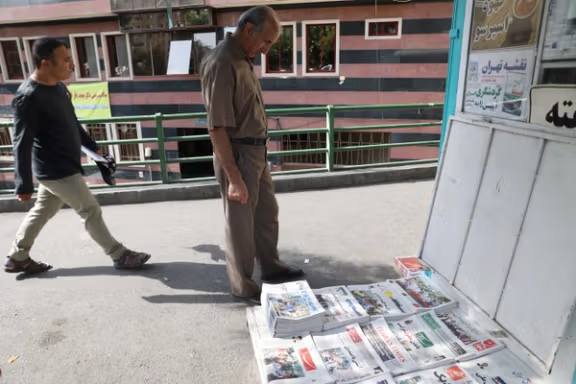
After two days of praise from government-controlled media in Tehran for President-elect Masoud Pezeshkian’s foreign policy statement, a major conservative newspaper on Sunday criticized his pro-East stance.
Pezeshkian set out his government’s foreign policy in an open letter to the world on Friday, praising the Eastern powers and attacking the West, only a day after NATO concluded its summit with unequivocal criticism of China, Russia and Iran.
The media in Tehran covered the statement in a very positive light, highlighting Pezeshkian’s message that the West should make concessions to Iran’s government. Even commentators who usually recommend a balanced foreign policy were either mostly silent or expressed their agreement with Pezeshkian.
However, on Sunday the conservative daily Jomhouri Eslami rebuked the new president for once again emphasizing the importance of close ties with Beijing and Moscow.
“The emphasis on relations with China and Russia and the extraordinary praise for the 25-year and 20-year long-term agreements with China and Russia, respectively, are weaknesses in Pezeshkian's statement,” the paper run by conservative cleric Masih Mohajeri said.
Although some in Iran and abroad have labeled Pezeshkian a “reformer” or “moderate,” he has so far adhered closely to the positions long espoused by Supreme Leader Ali Khamenei. Over the weekend, he reinforced his image as a staunch religious figure by repeatedly attending Shiite Ashura mourning ceremonies in the capital, while his aides were working on the make-up of his cabinet.
The conservative newspaper argued that Pezeshkian must surely be aware the excessive strengthening of relations with Russia and China in recent years, have been weaknesses of the two previous Iranian governments and “have consistently faced criticism and objections from the media and experts.”
The article continued by stating that paying "excessive" tribute to Russia and China has led these two powers to take Iran for granted. This was evidenced by their siding with the United Arab Emirates in its territorial claims on three Iranian islands in the Persian Gulf.
“Given this bitter reality, the strong emphasis on strengthening relations with these two countries cannot be accepted. What is acceptable is an emphasis on a balanced policy in international relations and establishing relationships with countries based on their loyalty to Iran's national interests,” the newspaper stated.
The US State Department announced after Pezeshkian’s victory that it does not consider it as a major factor to alter US policy. "The elections will not have a significant impact on our approach to Iran... Our concerns about Iran’s behavior are unchanged. At the same time, we remain committed to diplomacy when it advances American interests," a State Department spokesperson told Iran International.
White House spokesman John Kirby made a similar statement, saying the US is not ready to resume nuclear talks.
“They’re still supporting terrorist groups like Hamas and Hezbollah. They’re still supporting the Houthis as the Houthis attack ships in the Red Sea. They’re still attacking shipping as well. And they’re still supplying drones and drone technology and drone expertise to the Russians so that the Russians can continue to kill innocent Ukrainians like they did over the weekend,” Kirby told a press conference on July 8. “So no, no.”